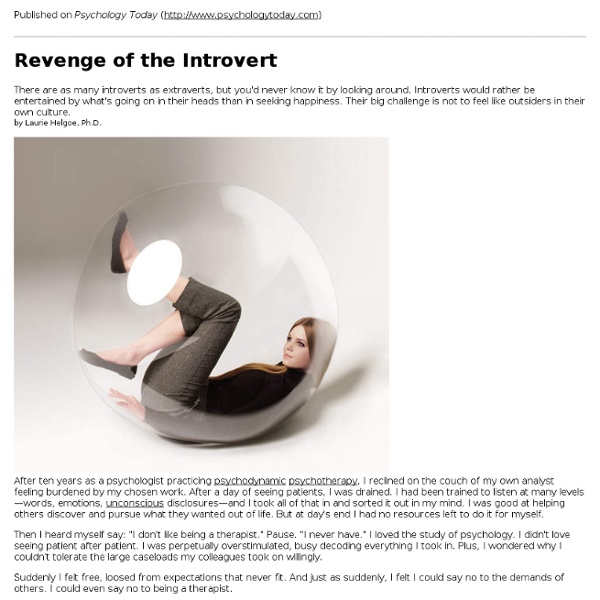Want to Know If Someone Likes You?
Ever wondered if someone you're attracted to likes you or not, whether someone is your friend or foe, or whether your employees respect you? There's an easy way to find out... try to make them laugh . If the laughter comes easy, the answer is likely yes. If it doesn't, the answer is likely no. In my bachelor days, I spent many years slowly learning about the ins and outs of the mating market. Somewhere along the way, I noticed one fairly consistent dynamic: whenever a woman I recently met and was talking to would say to me, "You're really funny!"
Blog : Test Your “Subitizing” Ability
Recently I found myself reading about “subitizing”, which is the process of instinctively counting small sets of items in a fraction of second. For example, try quickly counting a few of these: The Wikipedia article indicates that you can nearly always correctly count four or fewer items in a small fraction of a second. Above four, you start to make mistakes. I wanted to test this claim in Mathematica (using myself as the test subject).
Print - 110 Predictions For the Next 110 Years
· People will be fluent in every language. With DARPA and Google racing to perfect instant translation, it won't be long until your cellphone speaks Swahili on your behalf. · Software will predict traffic jams before they occur.
The free five minute personality test!
Your Existing Situation "Is stubborn and strong-willed, once her mind is made up it is impossible to change it. she does not ask for much, so she feels when she does ask her needs should be met." Your Stress Sources "Would love a partner with which to share a happy and conflict free existence, but her need for individuality causes her to be over critical and demanding. This leads to problems and disagreements, bringing them close and then pushing them apart, so that her ideal situation can never be fully developed.
Top 10 Self-Control Strategies
The science of self-control: use rewards, commitments, self-affirmation, adjust values, fight the unconscious and more… Self-control is vital to our success. People who have good self-control tend to be both more popular and more successful in many areas of life. Those with low self-control, though, are at risk of overeating, addictions and underachievement. Unfortunately, as we all know to our cost, self-control frequently fails. Part of the problem is we overestimate our ability to resist temptation (Nordgren et al., 2009).
100 Very Cool Facts About The Human Body – Global One TV: Multimedia for Mystics
The Brain The human brain is the most complex and least understood part of the human anatomy. There may be a lot we don’t know, but here are a few interesting facts that we’ve got covered. Nerve impulses to and from the brain travel as fast as 170 miles per hour.
How the Brain Stops Time
One of the strangest side-effects of intense fear is time dilation, the apparent slowing-down of time. It's a common trope in movies and TV shows, like the memorable scene from The Matrix in which time slows down so dramatically that bullets fired at the hero seem to move at a walking pace. In real life, our perceptions aren't keyed up quite that dramatically, but survivors of life-and-death situations often report that things seem to take longer to happen, objects fall more slowly, and they're capable of complex thoughts in what would normally be the blink of an eye. Now a research team from Israel reports that not only does time slow down, but that it slows down more for some than for others. Anxious people, they found, experience greater time dilation in response to the same threat stimuli. An intriguing result, and one that raises a more fundamental question: how, exactly, does the brain carry out this remarkable feat?
How to Live With an Unknowable Mind
We know surprisingly little about our own personalities, attitudes and even self-esteem. How do we live with that? How do you imagine your own mind? I sometimes picture mine as a difficult and contrary child; the kind that throws a stone at you for no reason and can’t explain itself. Or while at the beach it sits silent, looking miserable.



